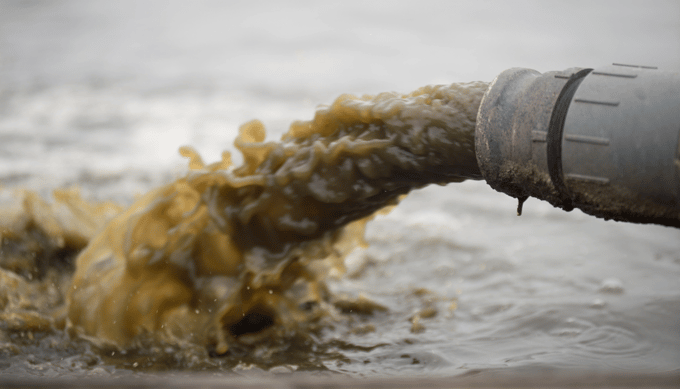
Water pollution is a global issue that poses a threat to the environment and human health. This blog post explores the definition of water pollution, its causes and effects, and the importance of regulating and preventing it.
The Definition of Water Pollution
Water pollution refers to the contamination of water bodies, such as rivers, lakes, oceans, and groundwater, with harmful substances or pollutants. These pollutants can be either natural or man-made and can come from various sources, including industrial activities, agriculture, sewage discharge, and improper waste disposal. The presence of these pollutants in water can disrupt the natural balance of ecosystems and pose serious risks to human health.
There are different types of water pollution, including chemical pollution, which involves the release of toxic substances into water bodies; biological pollution, which refers to the presence of harmful bacteria, viruses, and parasites in water; and physical pollution, which involves the presence of solid waste materials, such as plastic, in water bodies. Each type of water pollution has its own specific characteristics and impacts.
Causes of Water Pollution
Water pollution can be caused by a wide range of activities and factors. Some of the major causes of water pollution include industrial discharges, which release toxic chemicals and heavy metals into water bodies; agricultural runoff, which carries pesticides, fertilizers, and animal waste into rivers and lakes; sewage and wastewater discharge, which can introduce harmful bacteria and pollutants into water; oil spills and leaks, which contaminate marine environments; and improper waste disposal, which leads to the accumulation of solid waste in water bodies.
It is important to note that water pollution is often a result of multiple factors acting together. For example, a combination of industrial discharges, agricultural runoff, and sewage discharge can greatly contribute to the pollution of a water body. Therefore, addressing water pollution requires comprehensive and coordinated efforts from various sectors.
Effects of Water Pollution
Water pollution has a wide range of negative effects on the environment, wildlife, and human health. In aquatic ecosystems, polluted water can lead to the death of fish and other aquatic organisms due to the lack of oxygen, the presence of toxic substances, or the disruption of food chains. It can also impact the biodiversity and ecological balance of water bodies, leading to the loss of important habitats and species.
Moreover, water pollution can contaminate drinking water sources, posing serious risks to human health. Consuming contaminated water can cause various waterborne diseases, such as cholera, typhoid, and hepatitis. It can also lead to long-term health problems, including organ damage, developmental issues, and even cancer. Additionally, water pollution can have economic implications, as it can affect industries that rely on clean water for their operations, such as tourism, fisheries, and agriculture.
The Role of Regulations in Preventing Water Pollution
Regulations play a crucial role in preventing water pollution and ensuring the protection of water resources. Governments and regulatory bodies implement and enforce laws and regulations that set standards for water quality and establish guidelines for industries, agriculture, and municipalities to minimize their impact on water bodies.
These regulations often include requirements for the treatment and disposal of wastewater, the proper handling and storage of hazardous materials, and the monitoring and reporting of water pollution levels. By enforcing these regulations, authorities can hold polluters accountable and encourage the adoption of cleaner and more sustainable practices.
In addition to regulations, education and awareness also play a vital role in preventing water pollution. By promoting environmental education and raising awareness about the importance of clean water, individuals and communities can contribute to the prevention and reduction of water pollution.
Current Challenges and Future Solutions
Despite efforts to regulate and prevent water pollution, there are still significant challenges that need to be addressed. Rapid industrialization, population growth, and urbanization continue to exert pressure on water resources, leading to increased pollution. Climate change also poses additional challenges, as rising temperatures and changing precipitation patterns can affect water quality and availability.
To tackle these challenges and ensure the long-term sustainability of water resources, innovative solutions are needed. This includes investing in advanced wastewater treatment technologies, promoting the use of eco-friendly farming practices, implementing better waste management systems, and adopting sustainable water management strategies. Furthermore, international cooperation and collaboration are crucial to address water pollution on a global scale.
By implementing effective regulations, raising awareness, and embracing sustainable practices, it is possible to mitigate water pollution and protect our precious water resources for future generations.
